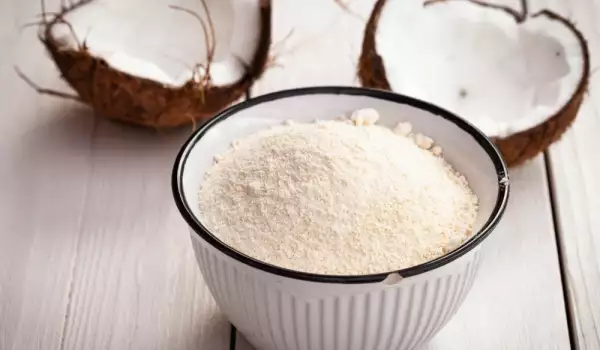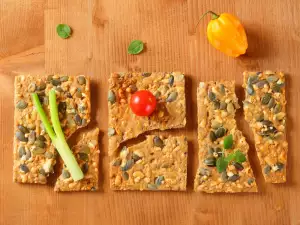A hard coconut is ground into a fine powder for making coconut flour. It has a light coconut flavor and is therefore is an ideal option for all types of recipes, that do not require highly flavored ingredients.
In addition to its many uses in the kitchen, its reputation has grown in the last few years in the Western world, thanks to the health benefits it offers.
It is much more nutritious than the regularly used flours. You can use coconut flour to make pastries and cakes, as it has a lighter texture. To add a special flavor, try mixing coconut flour with another multifunctional or multigrain flour.
The best thing about this flour is that it is gluten free, which causes damage to the lining of the small intestine and prevents the digestion of food. Gluten is unhealthy and is the main cause of bloating and stomach pain.
The use of coconut flour in our diet can greatly reduce the risk of heart disease. Replacing processed flours with it lowers the cholesterol and protects you from diabetes and cancer.

Coconut flour can make a huge contribution to achieving the recommended daily intake of fiber, which in turn helps the body cope with stomach problems such as bloating and constipation. Coconut flour contains a large number of fats that are good for the health.
These fats are extremely important to protect the body against fungal, microbial and viral attacks. With the antiviral, antiparasitic, antifungal and antibacterial properties it possesses, coconut flour contributes to building a strong immune system.
It maintains and restores thyroid function, improves good cholesterol and this way it reduces the risk of heart problems.
Coconut palms also produce coconut sugar, coconut milk, coconut oil and coconut water from it's coconuts, all of which are widely used in our daily lives.




















Comments